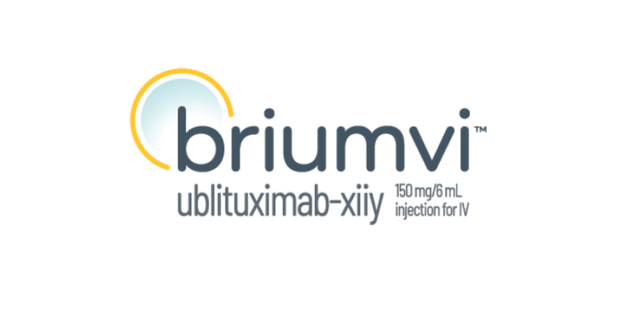Editor’s note: Seeking Alpha is proud to welcome Flourishing Capital as a new contributor. It’s easy to become a Seeking Alpha contributor and earn money for your best investment ideas. Active contributors also get free access to SA Premium. Click here to find out more »
studiostockart
What’s happening
TG Therapeutics (NASDAQ:TGTX) is approaching its PDUFA goal date of December 28, 2022, for ublituximab. Ublituximab met its primary endpoint in the ULTIMATE I and II Phase 3 trials with treatment demonstrating a statistically significant reduction in annualized relapse rate (ARR) compared to teriflunomide in patients with RMS. Overall, ublituximab demonstrated excellent efficacy and a well-tolerated safety profile.
It’s been a tough year for TG Therapeutics – which we elaborate on more below – but we believe TG Therapeutics will end the year on a high note and ublituximab will be approved by the FDA for the treatment of RMS.
Ublituximab’s approval should revitalize faith in management, and the stock. We assign a Strong Buy to shares of TGTX, and a target market value of $5 billion to $8 billion, or $37 to $59 a share for the company.
How we got here
Ukoniq (umbralisib), TG’s PI3K inhibitor class drug for the treatment marginal zone lymphoma (MZL) and follicular lymphoma (FL) was pulled from the market over safety concerns on April 15, 2022. Despite being well-tolerated with a safety profile better than first-generation PI3K inhibitors, with manageable toxicities and a relatively low number of AE-related discontinuations, Ukoniq suffered with broader FDA scrutiny on the entire PI3K inhibitors class. Regrettably, Ukoniq trials were also not powered for overall survival (OS), and available data analyzed in response to FDA questions on OS were not favorable. PI3K inhibitors offer significant promise – and umbralisib may see market success in some form – but further study will be necessary.
PI3K inhibitor safety concerns also affected TG’s separate Biologics License Application (BLA) to treat chronic lymphocytic leukemia (CLL) and small lymphocytic lymphoma (SLL) with the combination of Ukoniq and ublituximab (U2). As a result, TG also voluntarily withdrew its pending BLA for U2 in the same press release in April 2022.
We believe TG was right to put umbralisib and its entire cancer program on hold, and to focus solely on getting ublituximab to market for Multiple Sclerosis. Ublituximab in MS has always been TG’s best chance at blockbuster commercial success.
What they’re saying
The science behind ublituximab is convincing, and ublituximab demonstrated excellent efficacy and a well-tolerated safety profile. As a 3rd generation anti-CD20 monoclonal antibody, ublituximab is glycoengineered to enhance its potency, especially antibody-dependent cell-mediated cytotoxicity (ADCC) activity, and offers patients excellent care with the fast infusions and marketing leading ARR (below 0.10) among anti-CD20 drugs. Ublituximab is the first anti-CD20 therapy with an ARR below the 0.10 threshold in clinical trials.
The company tipped off investors to its progress for approval on its Q3 2022 earnings call with CEO Michael Weiss stating, “We can confirm that we have completed the late cycle meeting and labeling discussions have recently commenced. We remain hopeful that ublituximab will be approved.”
Investors cheered “labeling” as a signal for approval, sending the stock 63% higher on November 10, 2022. To be fair, shares of TGTX have suffered mightily this year, down more 60% year-to-date, and the $3 price move was only a small bounce, relatively speaking.
Why it matters
As TG transitions from development-stage to commercial-stage, investor attention shifts to launch execution.
It appears that ublituximab will launch under the trade name “BRIUMVI”. BRIUMVI came across our radar from public trademark filings and Google searches. Our public Internet research discovered that TG may offer direct purchase discounts through TG approved distributors and a direct purchase program called BRIUMVIdirect.
Financial assessment
TG management says they are ready to go with a comprehensive commercialization strategy, including plenty of available supply and launch pricing strategies. The company currently offers no sales guidance, but we expect ublituximab sales to be very meaningful in the coming quarters, which we explain more below.
TG has cash, cash equivalents and investment securities of $197.7 million as of September 30, 2022, and expects to burn approximately $40 million to $50 million of cash per quarter. In its 3Q 2022 earnings release the company says “its current cash, cash equivalents, investment securities and capital available under its debt facility on ublituximab’s approval will be sufficient to fund our planned operations into 2024.”
Revenues in the first year can also extend the company’s burn, as CEO Michael Weiss explained: “I think we are feeling quite good about the cash position… we are expecting to drive some revenues in the first year, which will also extend by 2024 burn number.”
What’s next?
With the stage set, the amount of revenue the company can achieve in year one of sales is the big question. Taking into consideration Roche’s first year sales for Ocrevus (ocrelizumab), ublituximab’s most comparable competitor, we believe $300 million in sales for ublituximab is very reasonable by year end 2023.
Ocrevus, which also an anti-CD20 drug administered by intravenous infusion for MS, was approved by the FDA on March 28, 2017. U.S. sales of Ocrevus totaled $510 million from launch through September 30, 2017 and achieved full year 2017 sales of CHF 0.9 billion (or roughly $1 billion), per company reports. Roche has massive scale and well-established marketing and distribution channels – so our expectations for TG should be tempered.
In its October 18, 2022 earnings release Roche reported global Ocrevus sales of CHF 4.4 billion (of which $3.3 billion were in the U.S.), including both relapsing and primary progressive forms of multiple sclerosis. (TG is currently only seeking approval in RMS.) Roche notes: “The demand for this treatment in both indications remained strong.” Ocrevus vs ublituximab will be an interesting battle in 2023 and beyond, and we expect ublituximab to gain significant market share and favor among patients as a 3rd generation option with higher potency, 1 hour infusion times, and a statistically meaningful efficacy and safety profile.
TG has not yet provided insight on its global commercialization plan, and the company may seek a partner in Europe. Our estimates are for US-based sales only.
Risks
“Clinical drug development involves a lengthy and expensive process, with an uncertain outcome,” as TG notes in its latest Q3 2022 10-Q filing. Investing in a development-stage biotech stock like TG Therapeutics is risky, and prospective investors should consider the company’s risks before investing.
Key risks include the following:
(1) We believe TG’s value is based primarily on the success of ublituximab in RMS. TG has a pipeline of programs, and plans to someday restart its cancer program, but commercial success and sales from any of its other programs will not happen for some time.
(2) TG’s ability to transition to a commercial company hinges on its ability to gain favor with payors, providers, and patients. As the saying goes, you only have one chance to make a good impression. TG’s launch of ublituximab needs to be well received. Ublituximab is an intravenous therapy and patient preference for oral versus intravenous therapy is a risk.
(3) As noted, TG does not have well-established marketing and distribution channels. TG’s relative inexperience in these areas is a risk.
(4) Investors should feel pretty good that TG has enough funding to reach 2024, but it is possible that it will need to raise additional capital that could dilute shareholders before the company becomes self-sustaining.
The big picture
Trying to precisely value a development-stage biotech like TG is very challenging. The MS therapies market is estimated at approximately $28 billion, and is growing. The notable efficacy of ublituximab in RMS, and its addressable market, certainly suggests that TG could capture significant revenue in the MS market.
The company is well positioned to capture more than $1 billion in US-based sales with ublituximab and achieve blockbuster success. Anti-CD20 monoclonal antibodies are critically important to patient care in MS, and we believe ublituximab’s glycoengineered efficacy is differentiated and meaningful.
We estimate that TG can achieve blockbuster status of $1 billion in ublituximab sales by the end of 2024 and $2 billion in sales in 2025. TG’s entire future is tied to the success of ublituximab, but we believe its future is convincingly bright.
We assign a target market value of $5 billion to $8 billion, or $37 to $59 a share to shares of TGTX. Our estimate value is based on a multiple of 2.5 to 4 times 2025 sales.
We also believe that novel monoclonal antibodies with blockbuster potential are logical acquisition targets, and TG’s ublituximab would complement several larger programs. As they win over payors, providers, and patients, we believe TG will attract big pharma suitors. Our value range considers comparable market transactions in neuroscience and cancer, such as Gilead’s acquisition of Forty Seven for $4.9 billion and Novartis’s $8.7 billion buyout of AveXis.



Be the first to comment